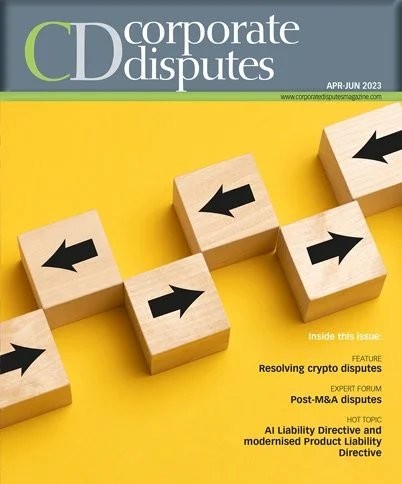post ma-disputes
CD: Could you provide an insight into how common it is for parties to a transaction to find themselves embroiled in a dispute post-closing?
Finizio: Post-M&A disputes have always been relatively common, and I expect that we will see more in the near term given current economic conditions. We are seeing more cases involving M&A transactions in which it appears that one of the parties either wants to terminate the transaction or change its terms, even before the deal is closed. Recent global economic and political developments, including energy prices, appear to have put added pressure on M&A transactions, particularly where circumstances now look different than they did when the deal was negotiated. Given that many M&A transactions have post-closing adjustment periods or post-closing time limits for claims based on breaches of representations and warranties (R&W), I expect that we will see an increase in disputes over the next year or two. I am particularly seeing disputes related to manufacturing, but my sense is that the overall economic volatility is leading to disputes across sectors.
Gärtner: From our experience, it is about a bit less than 10 percent of M&A transactions where we see some kind of dispute coming up later on. When exactly a dispute arises varies substantially from case to case, with most disputes coming up within the first 12 to 18 months after signing. However, we also see disputes arising more than 24 months after signing.
Angelini: Post-M&A disputes are increasingly frequent. The American International Group (AIG) recently published its sixth annual ‘Mergers and Acquisitions Claims Report’ which concluded that both claim frequency and severity are at elevated levels and estimated that one in five M&A deals results in a post-M&A dispute. There are a number of global factors that have led to this recent proliferation of post-M&A disputes.

